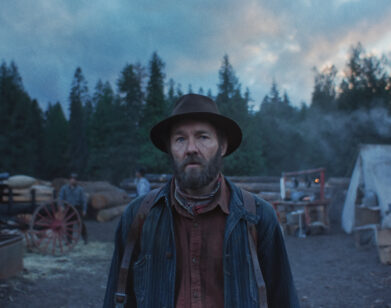Dangerous Beauty: Gerardo Naranjo and Stephanie Sigman on Miss Bala

ABOVE: STEPHANIE SIGMAN IN MISS BALA.
Without the stodginess of a socially-conscious “important” film, Miss Bala approaches its subject, drug cartels in Mexico, with a frantic urgency. The film is fretfully kinetic, with the camera serving as an active participant in the events happening on screen. The film is anchored by the stunning, and exhausting, performance of Stephanie Sigman in the role of Laura, the small-scale beauty-pageant contestant who is thrown into the world of crime. Sigman is front and center, on screen for almost every scene of the film; she is pushed, prodded, shot at, and worse, but never loses her balance. That this is Sigman’s first major role is a minor revelation.
Interview spoke to Sigman and director Gerardo Naranjo about the true story the film is based on, preparing for the film, and the politics surrounding the story.
CRAIG HUBERT: Gerardo, Miss Bala is a departure, in many ways, from your previous film, I’m Gonna Explode. Was it your intention to create something was different this time around?
GERARDO NARANJO: Yeah. I think each film reflects its director, and after I’m Gonna Explode, I changed. When I made this film, I had different interests. I was very upset about what was happening in my country. I was reading the news and couldn’t understand what was happening, so I set out to make a movie about violence in Mexico. In the beginning it wasn’t about a beauty queen, it was just about violence. Eventually the news came about a beauty queen who was apprehended by criminals, and I decided to take that story and use it as a way to speak about the world I see.
HUBERT: How closely does the story in the film follow the actual events it is based on?
NARANJO: The only thing we used from the real story is the photo, when she is apprehended with the criminals. Everything else is fiction. We knew the original girl; we decided her story had nothing to do with what we wanted to tell. It was important to tell my own version of the events.
HUBERT: Stephanie, what interested you in the character of Laura?
STEPHANIE SIGMAN: The story of a beauty pageant and organized crime is interesting in itself. How the script was from the point of view of this character that has no idea what is happening. Also, I think Laura is a young girl who has this quality, which in the world she’s living in becomes a flaw. She’s naive, innocent—in the young-girl way. The environment she’s living in was interesting to me. It was a challenge I wanted to take.
HUBERT: What kind of preparation did you do before the film?
NARANJO: The preparation was to talk a lot; to find out what kind of movie we wanted to make, to take the prejudices out. That was the most difficult part to figure out. We also did a great deal of interviews with criminals, bad people, people that are in jail, policemen. Also, we did the movie once in video, which was just about the choreography; we didn’t talk about the emotions. I think the emotions were the real challenge.
SIGMAN: It was really hard to contain the character emotionally. It was tiring in a physical way, as well. Gerardo also gave me some movies to see with female lead characters in a tough situation. They had nothing to do with Mexico, or drug dealers. I read some books about drug dealers and women – that were very disgusting—which provided the atmosphere I needed. I started doing research on the real girl, but I found it was not necessary. When we made the film on video, we shot all the scenes in four days, which was good because I learned the choreography, but I didn’t know the emotions. That came on the set.
HUBERT: The politics of the film are contemporary—these are current events, happening as we speak. Why was it important to make this film now, as opposed to later?
SIGMAN: It’s sad because people see a movie like this and you don’t see it as a movie—they see it as close to reality.
NARANJO: Well, I was very upset with the media cover-up of the criminality in Mexico. I felt most of the movies that dealt with these problems were soap operas that showed the criminals as cool guys, surrounded by women, having a party. Somehow I got the feeling the reality wasn’t like that. When we were doing the research, we found that this world is much greyer. I thought there was a good possibility to make a movie that defies the common understanding of the criminal life. There are so many positions in Mexico about how we should talk about crime. In fact, some people in Mexico think we are traitors to our country for making a movie about criminality, for talking bad about Mexico. I truly believe one of the reasons this is happening in Mexico is that we can’t see straight—we can’t look at ourselves and see what is happening. The question is: what is the responsibility of the people using drugs? I’m all for people using drugs and having a good time, you know, but what’s the responsibility of people who buy cocaine, when the money is going to buy guns that are killing people? Everybody is involved in the subject.
HUBERT: You mentioned that some people in Mexico consider you a traitor for making this film. Is that the general reception to the film in Mexico?
NARANJO: The response has been very polarized. There are many people who support the film; there are many people who claim we are provoking more crime because we are showing it in the film. There is not one image of drugs in the whole film, not one allusion to drugs, but still people say that we are the next installment of Narco Cinema. We knew this would happen when we finished the film.
MISS BALA IS OUT IN LIMITED RELEASE TODAY.






